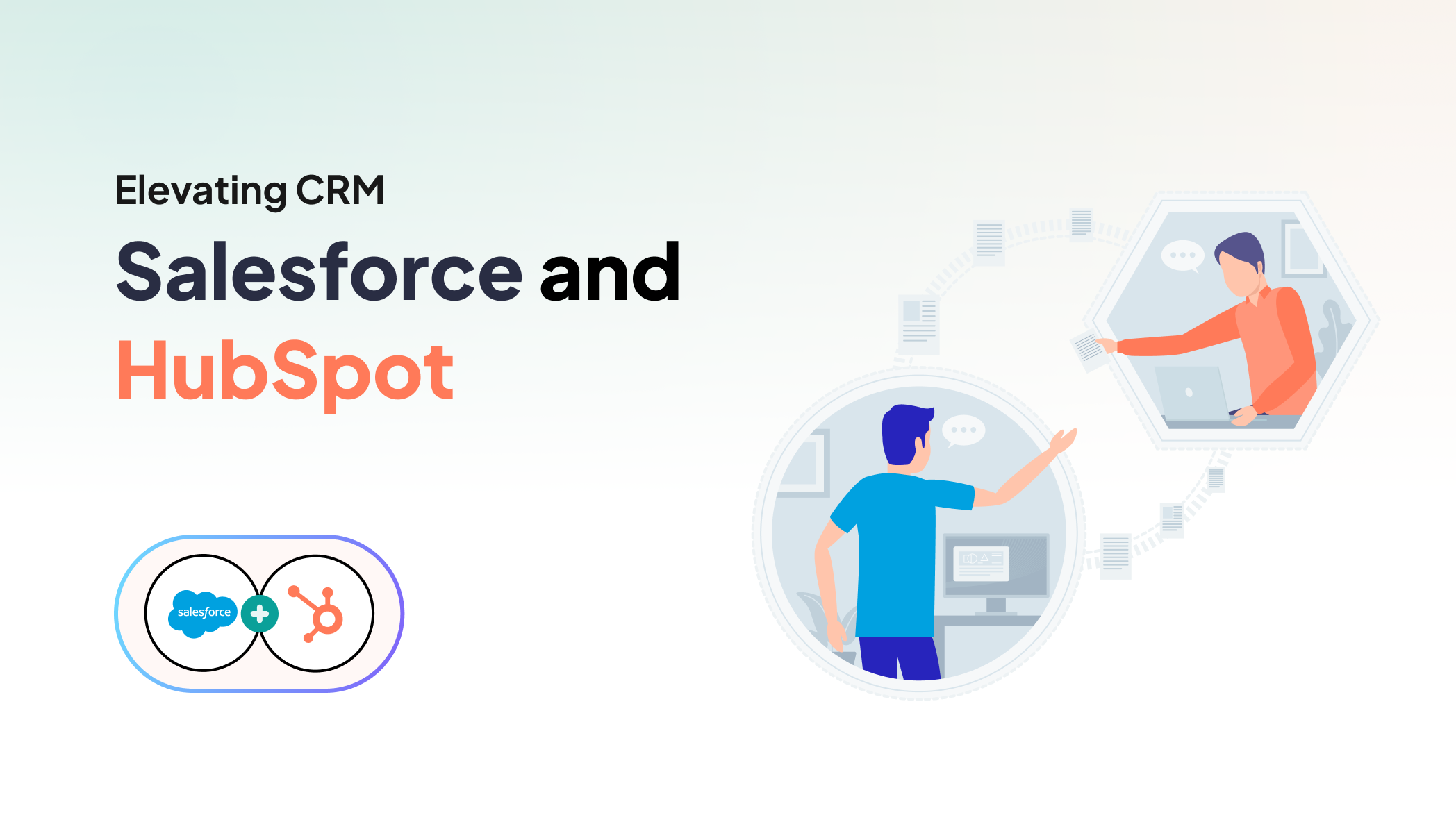Whatsapp API is revolutionizing the way businesses engage with their customers. Whatsapp API allows...
Discover the power of integrating HubSpot and Salesforce to enhance your customer relationship management strategy.
Streamlining Data Management
Integrating HubSpot and Salesforce allows for seamless data management, ensuring that all relevant customer information is easily accessible in one place. With the integration, you can eliminate the need for manual data entry and the risk of duplicate or outdated data. This streamlines your processes and saves valuable time for your sales and marketing teams.
By centralizing your data, you can gain a holistic view of your customers and their interactions with your business. This enables you to make more informed decisions and provide personalized experiences based on their preferences and behavior. With a unified data management system, you can effectively track and analyze customer interactions, identify trends, and optimize your strategies for better results.
Improving Sales and Marketing Alignment
Integrating HubSpot and Salesforce bridges the gap between your sales and marketing teams, fostering better alignment and collaboration. The integration allows for seamless data sharing, ensuring that both teams have access to the same up-to-date information about leads and customers. With the integration, marketing can easily pass qualified leads to sales, and sales can provide valuable feedback on lead quality and conversion rates. This alignment enables both teams to work towards a common goal and ensures a smoother handoff of leads, resulting in a more efficient sales process.
Furthermore, the integration enables better tracking and measurement of marketing campaigns. By connecting HubSpot's marketing analytics with Salesforce's sales data, you can gain valuable insights into which marketing efforts
identify what drives the most revenue and adjust your strategies accordingly
Enhancing Customer Experience
Integrating HubSpot and Salesforce allows you to enhance the overall customer experience by providing a seamless and personalized journey. With a unified view of customer data, you can deliver more targeted and relevant communications at every touchpoint. Personalization becomes easier as you can leverage the data stored in both platforms to create tailored marketing campaigns, personalized emails, and customized sales pitches. This level of personalization helps build stronger relationships with your customers and increases the chances of conversion.
Additionally, the integration enables you to provide timely and proactive customer support. With access to real-time data and customer interactions, your support team can quickly address customer inquiries and provide personalized solutions. This improves customer satisfaction and loyalty.
Boosting Productivity with Automation
Integrating HubSpot and Salesforce allows you to automate repetitive tasks, freeing up time for your sales and marketing teams to focus on more high-value activities. With automation, you can streamline your workflows and ensure that nothing falls through the cracks.
For example, you can automate lead nurturing campaigns, where leads are automatically entered into a sequence of targeted emails based on their behavior and stage in the buying process. This saves your team the effort of manually sending individual emails and ensures that leads are consistently engaged. Automation also helps with lead scoring and qualification. By setting up automated processes to evaluate lead behavior and demographics, you can prioritize leads and focus on those with the highest potential for conversion. This increases efficiency and allows your teams to work smarter, not harder.
Maximizing ROI with Integrated Analytics
Integrating HubSpot and Salesforce provides you with comprehensive analytics and reporting capabilities, allowing you to measure the impact of your marketing and sales efforts and maximize your return on investment.
By combining the data from both platforms, you can gain insights into the entire customer journey, from initial contact to closed deal. This helps you identify which marketing channels are driving the most qualified leads and which sales strategies are most effective in closing deals. With integrated analytics, you can track key metrics such as conversion rates, revenue generated, and customer lifetime value. This data-driven approach enables you to make data-backed decisions, allocate resources more effectively, and optimize your marketing and sales strategies for better results.
Overall, the integration of HubSpot and Salesforce allows you to harness the power of data and analytics to drive your business forward, improve customer relationships, and achieve your revenue goals.



